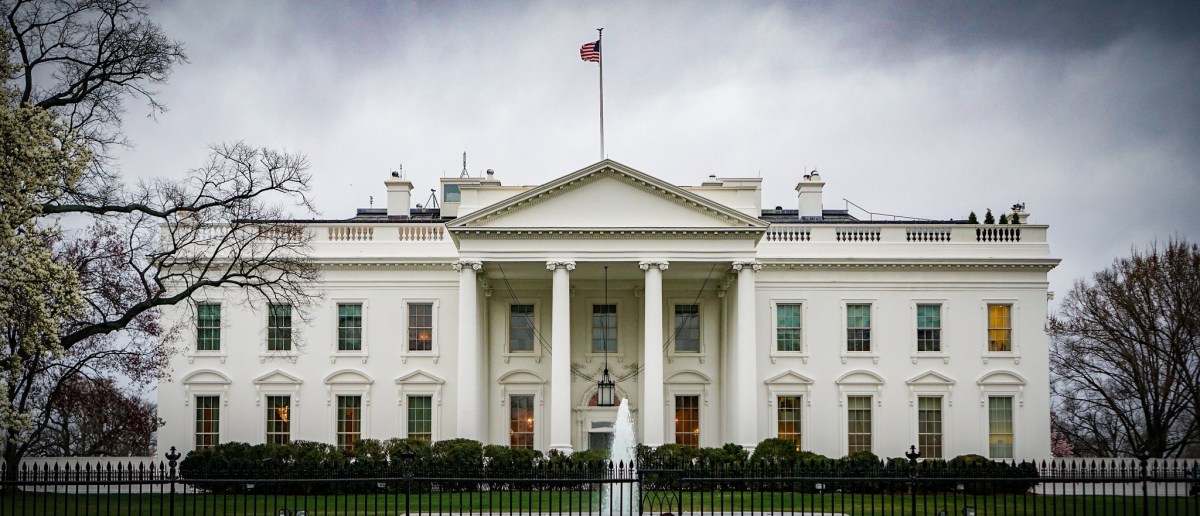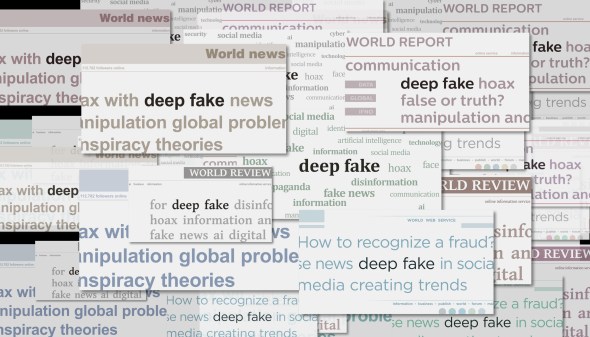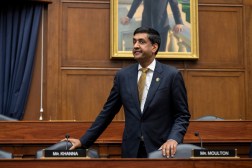‘Positive emotional experience’ is Trump aide’s vision for modernized citizen services

White House official Chris Liddell shared a vision Tuesday for modernizing citizen services through the use of data analytics and incremental innovation, while improving cybersecurity and government technology.
In a conversation with House Majority Leader Kevin McCarthy, R-Calif., at a White House event, Liddell said his conceptualization of modernized government services focuses on three things: world-class citizen services, a top analytics platform and cybersecurity.
“The government does incredibly important things, but it actually does relatively simple things, certainly from a technology point of view,” said Liddell, assistant to President Donald Trump and the White House’s director of strategic initiatives. “So you should have the same positive emotional experience dealing with the government as you have with the private sector when it comes to technology. So think FedEx, think Amazon, think anything that does a large number of transactions in a simple fashion.”
When discussing having a “world-class analytics platform,” he noted that government can’t run efficiently without data. That premise underpins laws like the DATA Act, which requires all agencies to report spending data in a standardized way.
Trump’s Office of Management and Budget director, Mick Mulvaney, has said that structural changes — like implementing the DATA Act — are crucial to even fully understanding how federal money is being spent.
One of the areas of emphasis in Liddell’s vision was “having an external-facing [analytics] platform but also an internal-facing platform, so people working inside the government can run it in the most effective and efficient fashion.”
Liddell, a former chief financial officer for both Microsoft and General Motors Co., also noted the government is spending too much money while continuing to deliver subpar services. That played right into much of McCarthy’s focus during the conversation: The Modernizing Government Technology Act.
The bill passed the House last session, but it ultimately lagged in the Senate after the Congressional Budget Office said it would cost billions of dollars. Texas Republican Rep. Will Hurd plans to reintroduce the bill, with tweaked language, “very soon.”
Of the bill, McCarthy noted that Hurd and Steny Hoyer, D-Md., are “working on how we’re going through with each department and changing how we use technology and getting rid of the legacy programs.”
He added though, “But we would never be successful if we didn’t have the administration tied with us, because they’re running agencies. So the more that we interlink together … it’s been a breath of fresh air with this new administration, I can’t say enough about it.”
Will the Trump administration make it happen?
When asked why ideas to improve government services have not made much traction in the past, Liddell noted that there’s “virtually 100 percent alignment on the what we need, virtually no alignment on the how to do it.”
He went on to add, “But we have a president who’s actually willing to invest, not only for this administration, but for future administrations. And I think that’s been a big difference, that we’re willing to take a four-plus year approach and actually do the hard work involved.”
McCarthy also said that the “greatest strength” in the effort to modernize government services is the president.
“We’ve got a disruptor,” he said. “If anybody else was sitting in that job you’d get status quo to continue further. They’d talk about it, but they couldn’t get it done. So one, we’ve got a great ability to make this happen because of our president.”
Liddell mentioned too the recently launched White House office headed up by Jared Kushner, the Office of American Innovation.
“What Jared’s done is empowered us to say, throw away the old rulebook when you approach these problems,” Liddell said. “Take whatever you think is the most sensible approach going forward.”
Liddell also focused on the importance of the private sector in making change.
“We need to access the private sector way more than we have in the past. I mean the billions and billions of dollars spent in the cybersecurity space in the private sector are vastly more powerful than anything we can do internally,” he said. “So we need to mentally shift from ‘we can solve these problems’ to ‘how do we get the best services from the private sector to fight cybersecurity?’ That’s going to take multiple years to do, but it’s a change in mindset and it’s incredibly important. But it’s consistent with the other things we’re doing as well, which is having better citizen services.”
He also seemed to hint at the importance of incremental development, or what he called “continuous innovation.”
“From my point of view the government needs to totally rethink the way in which it implements technology. So our traditional approach has been these big, monolithic, multi-year projects, which by the time they’re finished they’re out of date, certainly from a cybersecurity point of view. The whole world is moving toward much more continuous innovation, and we need to rethink the way that we implement technology along those lines. So we need to move, not only to more cloud-based, but a more continuously-updating,” he said, later adding, “Again, continuous improvement rather than bit multiyear projects has to be the way of the future.”
Quick wins on federal technology
“This is going to be multiple years, this is not going to be easy, this is going to be hard work, so it’s not going to be exciting,” Liddell said. “In terms of short-term wins, I think in the purchasing area that’s a huge one I think we can do relatively quickly. We buy not only in the IT sense but just about about everything … and we don’t use economies of scale.”
He added: “The other thing would be killing all the regulations. The last administration put a huge number of regulations in terms of what agencies need to do to comply with the various IT things that they do. All of those have inhibited progress. If we do the same approach that we’re doing with everything else in government and take away some of those regulations, it will actually allow agencies to do their business, without any central control, vastly better.”




